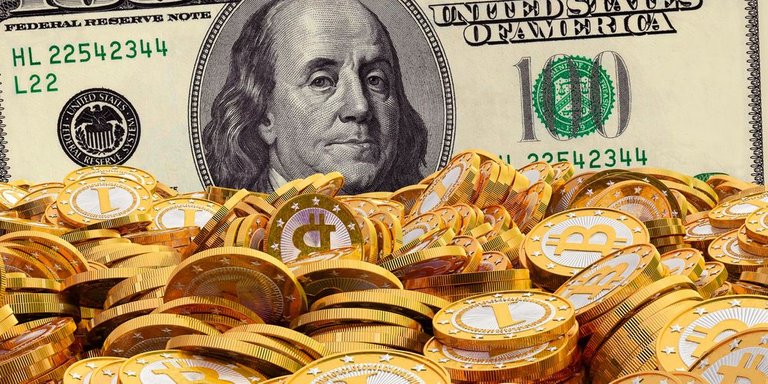
Bitcoin, the world's most popular cryptocurrency, is expected to be on the verge of serious competition with the dollar, according to oil analysts.
The Bitcoin has exploded in recent months, reaching more than $19,000 on Thursday in the Coinbase market, before recording a significant decline. These sharp price swings have prompted some of the world's largest banks to denounce bitcoin as a fraud, warning investors against a speculative bubble that is set to fail.
However, early in the month, U. S. regulators gave the green light to two of the world's largest futures exchanges to list futures contracts on Bitcoin. As CNBC explains, futures contracts are derivatives, or financial instruments, that require an operator to buy or sell an asset at a specified time and price. The announcement was seen by some observers as a vote of confidence in the legitimacy of the digital currency.
"This should strengthen the growing popularity of cryptocurrencies, to the point that they could threaten the role of the U. S. dollar as a world reserve currency," said Stephen Brennock, oil analyst at PVM Oil Associates, in a research paper released on Friday.
Dollar-based oil contracts currently dominate world markets, although countries such as China, Russia and Venezuela have long considered the dollar a strategic priority. This would allow them to reduce their dependency on the dollar, while limiting their exposure to U. S. currency risk and sanctions.
"The advent of cryptocurrences is therefore a new catalyst for countries that produce raw materials and want to abandon the dollar as a means of paying for oil," Brennock said.
An oil cryptocurrency launched by Maduro
On Sunday, Venezuelan President Nicolas Maduro announced the launch of an oil cryptomoney called "petro". Cnbc reveals that the member of OPEC (Organization of Petroleum Exporting Countries) tried to avoid dollar payments for its oil because of the deteriorating relations between Caracas and Washington.
Maduro's pivot away from the dollar was ridiculed by opposition legislators, who wondered if the "petro" would ever see the light of day. Nevertheless, if the new crypto finds an audience, "it could ultimately prevail as a means of conducting financial transactions - including oil sales," Brennock said.
China should be the friction point.
Russia and Venezuela share a same goal of reversing the dollar's price norm. However, Brennock said China could be the "sticking point" for the future of cryptocurrencies in the commodities sector.
The Chinese central bank stopped trading on digital currency trading platforms in Beijing and Shanghai in mid-September, fearing that unregulated markets could pose a major financial risk.
Very informative!
Thanks for sharing this diverse geopolitical/socio-economic post!
I'm an avid believer in crypto- & blockchain tech.
I've followed back =]
Very intriguing forward-looking assessment!
Even as a US citizen, I have a moral obligation to promote world peace, to which the U.S. seems to be failing miserably, due to the agenda to 'enforce faith and trust in the dollar'.
If I could add just a bit of wry humor based on semantics ... The dollar can't compete with crypto and crypto shouldn't want to compete with the dollar, they're not in the 'same league.' ;-)